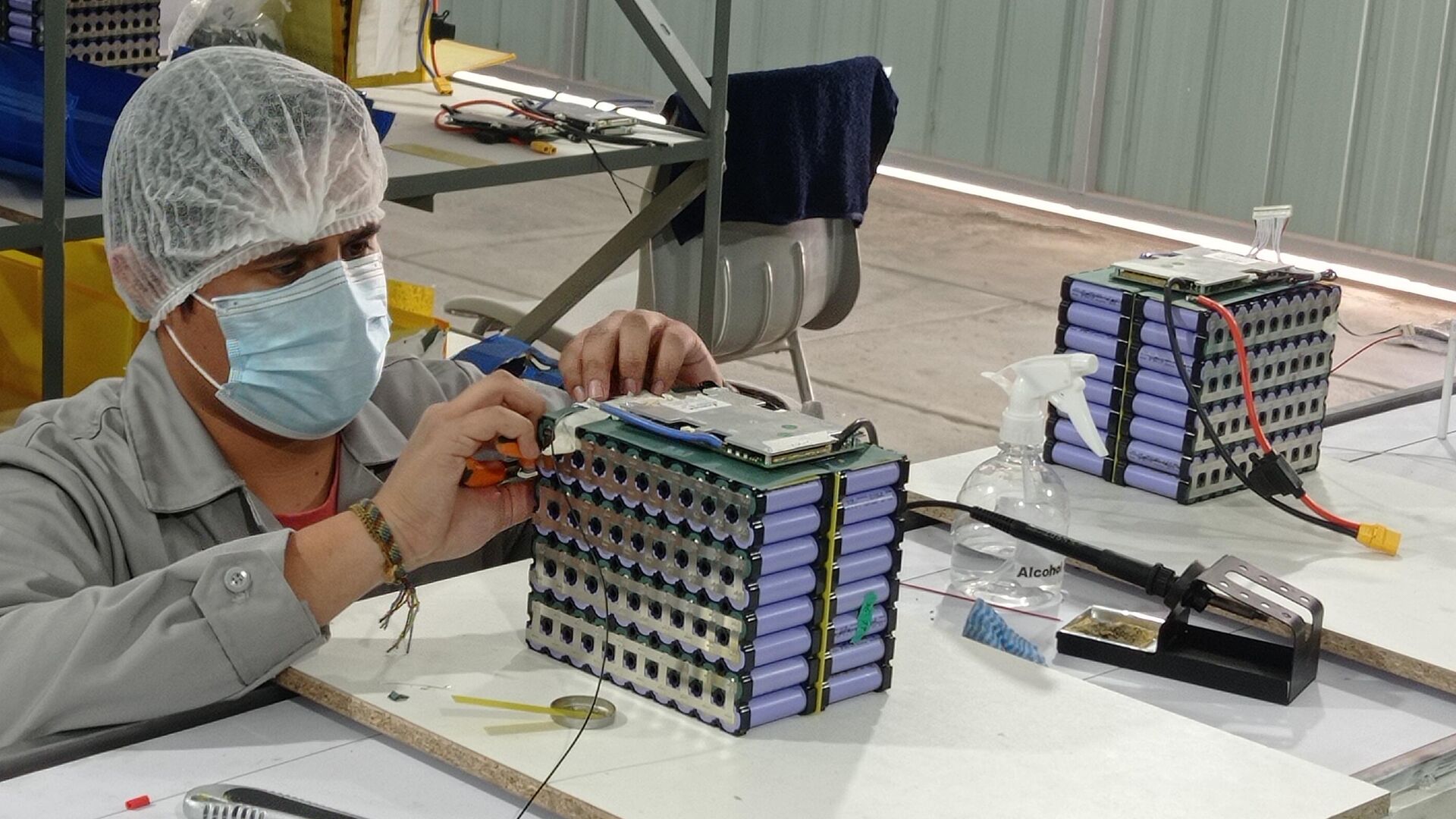The first lithium battery factory began operations in Bolivia and will soon start sales in Paraguay and Peru.
Quantum Motors, a company specializing in building electric cars in Bolivia, took another step towards the industrialization of lithium from the Uyuni salt flats with the inauguration of Quantum Batteries in Cochabamba.
The firm established the first electric car factory in Bolivia in 2019. Early last July, its CEO, José Carlos Márquez, inaugurated the country’s first lithium battery plant.

FIGURES FOR LITHIUM BATTERIES IN BOLIVIA
The batteries currently manufactured in this center use up to 20% Bolivian lithium because the industry has yet to develop further in Bolivia.
In the first half of 2022, the state-owned company Yacimientos de Litio Bolivianos earned more than US$35 million from selling potassium chloride and lithium carbonate.
That amount exceeds the US$27 million profit recorded for the same concept in 2021.
In an interview for the digital media Sputnik, Federico Iriberry, Manager of Quantum Batteries, pointed out that Bolivia does not make cells, but it is linked to some companies that today buy lithium carbonate and produce them.
Between 10% and 20% of our production has lithium from Bolivia. But the other 80% we have to buy from different places, mostly from China,” he said.
QUALITY CHECK
The new factory has several devices dedicated to verifying that the lithium batteries produced in this plant are safe and stable.
Regarding the battery qualification process at the plant, Iriberry added that the employees receive constant training, and even he has furthered his training in lithium and the creation of components with this mineral.
For this reason, the company’s ultimate intention is to become a hotbed of engineers specializing in lithium batteries.
Meanwhile, Márquez indicated that Bolivia suffered a notable decrease in fuels and the electric vehicle industry appeared at a good time.
“Bolivia can be at the forefront of what is coming in the world, which is that change of energy matrix that is so needed, leaving behind the polluting and scarce fossil fuels,” he said at the opening ceremony of the battery factory.
He added that Bolivia is an essential electricity producer and has a lot of power to expand the production of clean, renewable energy.
HOW DOES THE LITHIUM BATTERY FACTORY OPERATE?
The lithium battery factory started operating with an investment of US$500,000.
According to Márquez, by the end of 2022, the company will be capitalized with another half a million dollars to intensify production.
Ten people will initially work in the company to supervise automated processes with state-of-the-art machines that do not require operators to do the work.
The amount of batteries produced is not measured per unit but per kilowatt hour because each battery requires a certain amount of material.
In that plant, up to 3,000 kWh can be produced in a single work shift.
That amount could power 500 Quantum cars per month or about 2,000 electric motorcycles.
With information from The Logistics World

